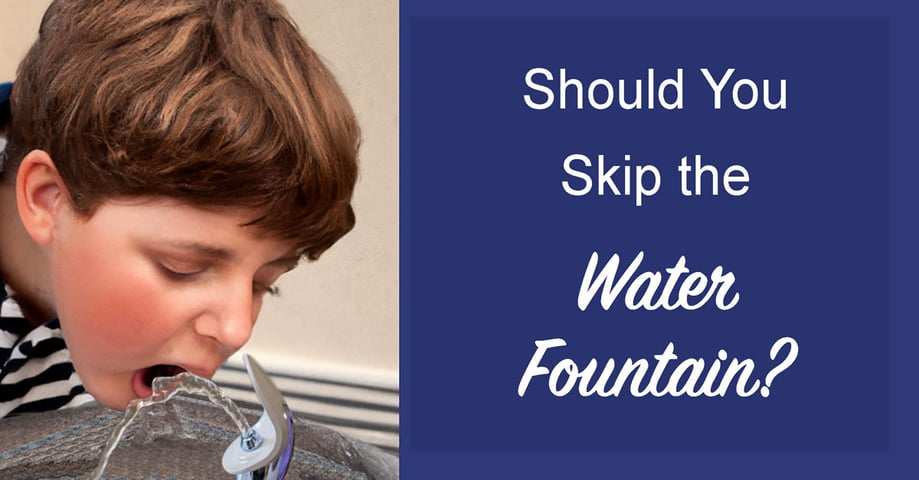Should You Skip the Water Fountain?

For many people, water from a drinking fountain comes with a healthy dose of nostalgia. They remember being a kid in school and slurping delightedly at the fountain’s cool, refreshing, arching stream after working up a good sweat on the playground, in gym class, or sports practice.
You have to go back several decades, but there was a time when neither bottled water nor water bottles existed. The closest thing was a canteen, and you never saw anyone carrying one of those except for on long hikes or camping trips. In those years, a drinking water fountain was like an oasis in the desert, and the first one to get to it was the king or queen of that territory until they decided to step aside and let others partake!
Today, we have multiple ways to get the water our body needs to stay properly hydrated. That being the case, should water fountains still be our go-to hydration source?
Water Fountains: It’s About More Than the Water
As a company that sells natural spring water and is writing a blog post asking whether people should skip the water fountain, you might reasonably expect us to sound the alarm about these devices. However, the reality is that when a water fountain pumps water to thirsty users, it provides the same municipal water found in homes in the area. That means the authorities are required to monitor its quality to ensure it doesn’t contain harmful pathogens or chemicals.
So, from that perspective, water fountains tend to be relatively safe sources of drinking water. But that’s not the end of the story. Several components of a unit can house microorganisms—specifically, water fountain bacteria.
For example, most drinking water fountains have a basin of some type and a hood-type device over the waterspout opening. And unless someone is cleaning those items regularly and thoroughly, you can be sure they are harboring bacteria. So, if any droplets splash up from the basin or off the hood and onto your face or into your open mouth, you’re ingesting those germs. And of course, we've all seen kids who put their mouth directly on the water spout... but we would never have done that, right?
Is exposure to small quantities of bacteria found on water fountains likely to harm you? Your doctor is best qualified to answer that question, as they know your medical history and current condition. However, you don’t often (or ever?) hear in the news about people getting sick from bacteria in drinking water fountains. Nonetheless, the risk exists, so it’s something you should consider.
Potential Problems in the Plumbing
Another source of health issues from public drinking fountains is the plumbing system that supplies a given device. In older buildings, corroding pipes can contaminate water with chemicals and toxins even before it reaches the fountain. So, even if you’re drinking from a very clean fountain, you’re getting whatever type of water impurity is present.
And unlike older homes, where the homeowner may be more vigilant about water quality and plumbing problems, the pipes supplying school water fountains, drinking fountains at parks, etc., might not get the same level of care. So, an issue could go undetected for years or decades before it’s discovered and addressed.
Bottom Line: Natural Spring Water Is Better
Staying hydrated is essential to good health. So, if you are out and about and don’t have water with you, and you aren’t aware of a reason you shouldn’t use a water fountain, it may make sense to go ahead and quench your thirst.
But as noted above, people today have options for how and where they get their water. And, from the safety to the health benefits to the taste, nothing beats Eldorado Natural Spring Water. It’s easy to find and affordable, and you can set up regular water delivery to your home or business, so you never run out.
Our advice: Drink from a water fountain if you must, but drink our natural spring water whenever you can!







